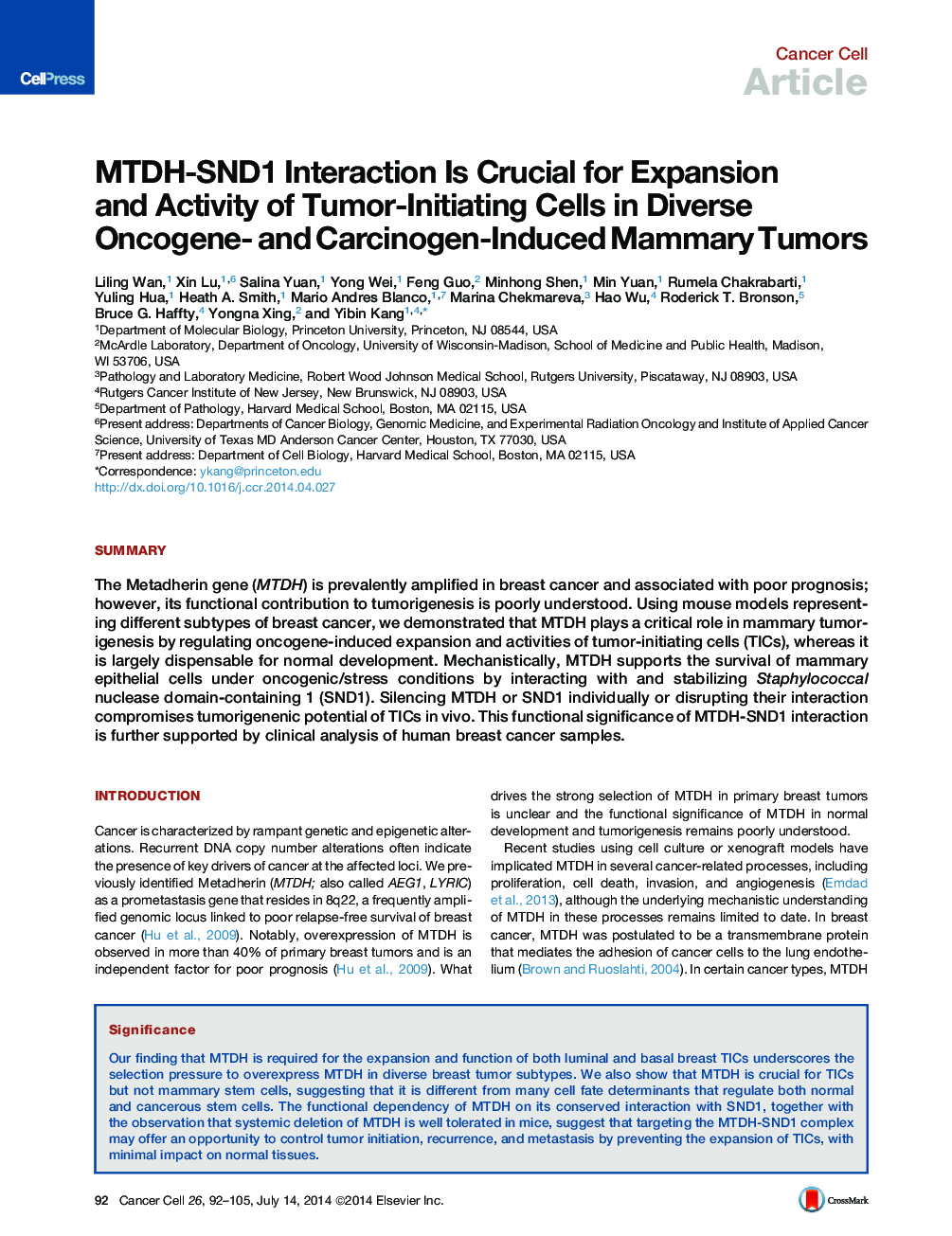| Article ID | Journal | Published Year | Pages | File Type |
|---|---|---|---|---|
| 2106818 | Cancer Cell | 2014 | 14 Pages |
•MTDH deficiency inhibits diverse oncogene- or carcinogen-induced tumorigenesis•MTDH is selectively required for TICs but not normal mammary stem cells•MTDH-mediated stabilization of SND1 confers survival advantage under stress•MTDH interaction is required for SND1-dependent expression of prosurvival genes
SummaryThe Metadherin gene (MTDH) is prevalently amplified in breast cancer and associated with poor prognosis; however, its functional contribution to tumorigenesis is poorly understood. Using mouse models representing different subtypes of breast cancer, we demonstrated that MTDH plays a critical role in mammary tumorigenesis by regulating oncogene-induced expansion and activities of tumor-initiating cells (TICs), whereas it is largely dispensable for normal development. Mechanistically, MTDH supports the survival of mammary epithelial cells under oncogenic/stress conditions by interacting with and stabilizing Staphylococcal nuclease domain-containing 1 (SND1). Silencing MTDH or SND1 individually or disrupting their interaction compromises tumorigenenic potential of TICs in vivo. This functional significance of MTDH-SND1 interaction is further supported by clinical analysis of human breast cancer samples.
Graphical AbstractFigure optionsDownload full-size imageDownload high-quality image (229 K)Download as PowerPoint slide
